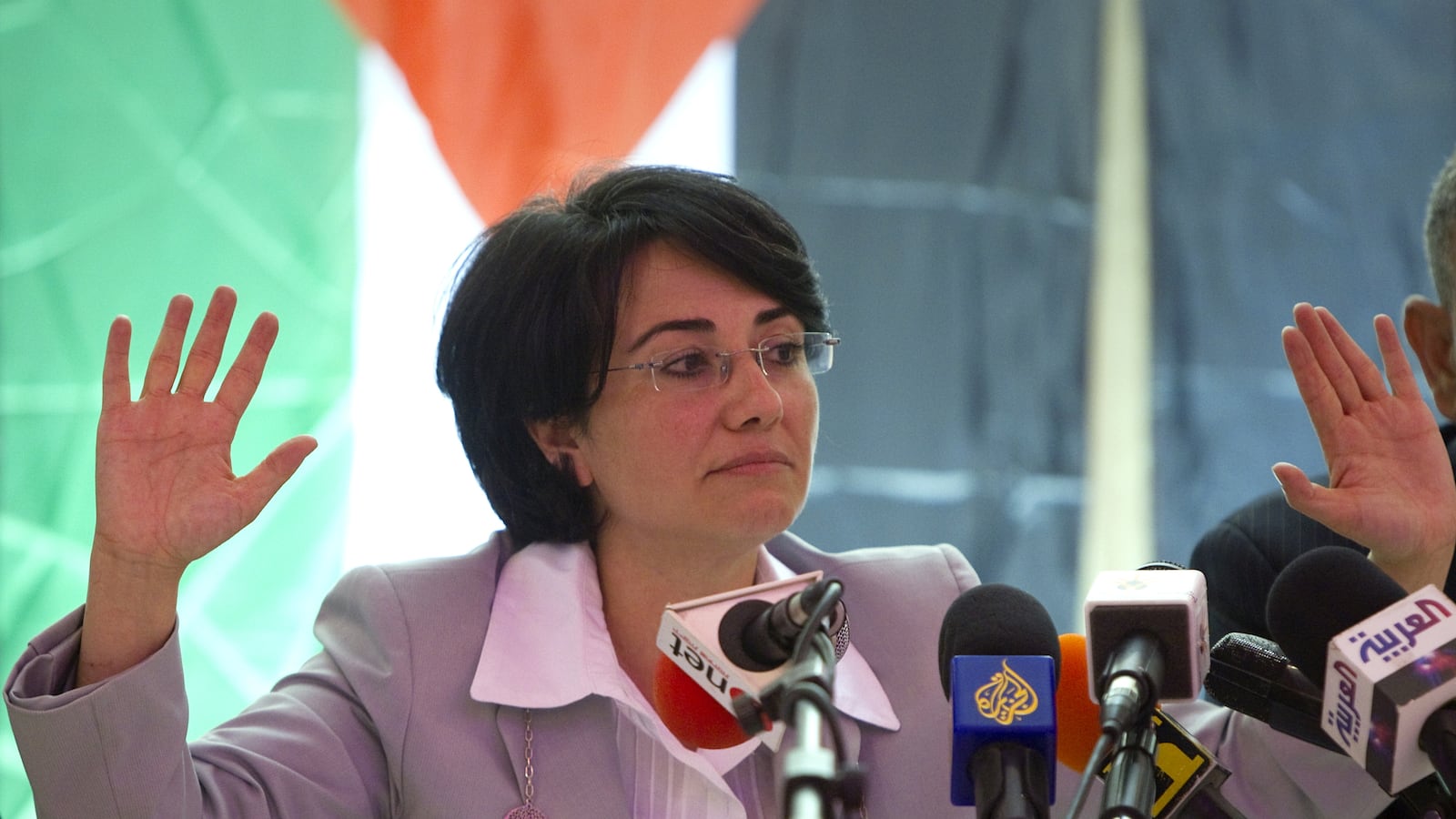MK Hanin Zoabi has had a tough term. Since first being elected to the Knesset in 2009 as number three on the list for Balad (National Democratic Assembly), the party founded by now-exiled former MK Azmi Bishara in 1995, Zoabi has endured almost constant personal and political attacks. She was aboard the Mavi Marmara, the Turkish ship participating in the "Free Gaza" flotilla, when it was raided by Israeli commandos in 2010. In the aftermath, she suffered verbal attacks and threats from other Knesset members, and Likud representative Anastasia Michaeli tried to physically prevent her from addressing the legislative body. Last month, Israel's Central Elections Committee voted to disqualify Zoabi's candidacy. At the conclusion of the December 27 hearing where a panel of nine justices, headed by Supreme Court President Asher Grunis, overturned the ruling, right-wing activists called her "terrorist" and "filth," and tried to push past her escorts to prevent her from making a statement.

Just a few days ago, the far-right Otzma LeYisrael party, founded by Aryeh Eldad and Michael Ben Ari, ran an ad featuring a black and white picture of Zoabi's face and the caption: "Only Eldad and Ben Ari will make her stop smiling in the Knesset." Zoabi recently told Haaretz, "It's said that I'm the most hated woman in the country."
In Zoabi's eyes, though, it is precisely these attacks and the political incitement against her that will open the minds of Jewish voters. She expects the party to more than double its Jewish support in the upcoming elections on January 22. While the vast majority of Israeli Jews find Zoabi’s views objectionable because she rejects the concept of the Jewish state, and only some several hundred Jewish voters will turn out for Balad, Zoabi nonetheless sees this as a significant, positive, and desirable increase. "We have repeated our attitudes, what we believe in, again and again—we're very outspoken," Zoabi said. "Balad is offering the only democratic vision that exists in the Knesset."
Zoabi argues that Balad should be the natural choice for Israeli voters who value democracy. "We are the only ones offering a democratic program for the Palestinians, and also for Jewish citizens," she said. "We are the only party that talks about democracy and equal citizenship as the basis of our life and our political vision. All the others first base their vision on national separation." Zoabi explained that the Zionist left's focus on two ethnic national states as the solution to the Israeli-Palestinian conflict precludes a place in Israel for the Palestinians whom Israel did not expel in 1948—those like Zoabi herself, who was raised in Nazareth and educated at the University of Haifa and the Hebrew University.
"We say the basis should not be national segregation, it should be equality, justice, and freedom," Zoabi continued. "This is why I can represent a Jewish citizen who believes in democracy much better than any Zionist party. When you say Zionism, this means a Jewish state. When you say Jewish state, this means giving privileges to the Jews at the expense of the Palestinians. That is not a democracy."
Though Zoabi admits that Balad focuses on the national identity of Israel's Arab citizens, who make up just over 20 percent of the country's population, the identity of Jewish citizens is not far from her mind. "Balad recognizes the collective rights—cultural, national, and religious—of Jewish citizens," Zoabi said. "I am not saying that the state must recognize my collective rights while I don't recognize the other group's. Jewish citizens who can think freely, outside the psychological ghetto that the state of Israel has created, will have no problem adopting Balad's vision. On the contrary, they will find it the only democratic vision possible."
Zoabi is sincere when she says she wants more Jewish support, and while Balad may not attract more than the radical fringe, she deserves every vote she will get. In an election ruled by fear, Zoabi's is an angry, but ultimately hopeful voice: She is appealing to what is best and most rational in Israeli voters, their capacity to imagine a society based on true equality. This same unabashed commitment to equality has made her such an outspoken force in the parliament. She has opposed the previous Knesset's avalanche of racist legislation and been vociferous in her support for women's rights. Zoabi should be prepared, though, for more attacks: Her sincerity and commitment have made her a lightning rod for all the right's hostility and spite.






